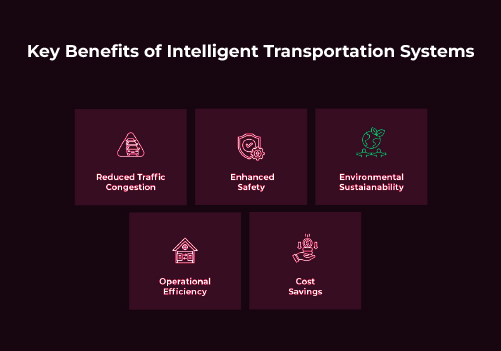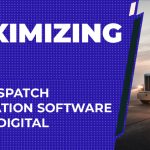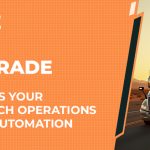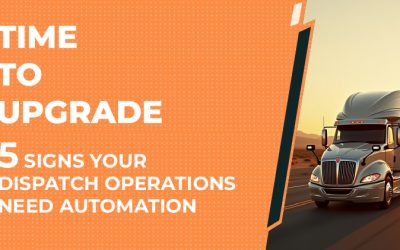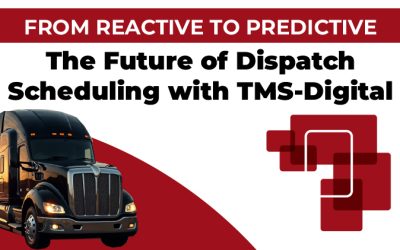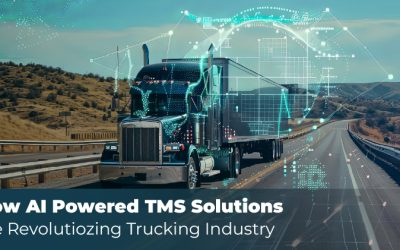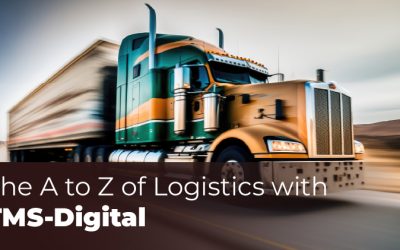
Smarter, Safer, Sustainable Transport
Modern cities and supply chains are under increasing pressure to ensure safe, sustainable, and highly efficient mobility. As transportation demands surge, innovative digital solutions become crucial. Enter the Intelligent Transportation System (ITS)—a powerful integration of communication, data, and automation designed to optimize how people and goods move.
At TMS-Digital, we are redefining how organizations and municipalities manage transportation with advanced TMS Software, dispatch scheduling, and intelligent fleet management tools tailored for the modern world.
What is an Intelligent Transportation System (ITS)?
An Intelligent Transportation System (ITS) is a comprehensive framework of connected technologies that enhance transportation safety, efficiency, and sustainability. By integrating software, sensors, communication networks, and real-time data analytics, ITS transforms how traffic is managed, how logistics are planned, and how commuters experience mobility.
ITS solutions—from traffic signal optimization to real-time fleet tracking—allow users such as commuters, dispatchers, and logistics managers to make smarter, faster decisions.
📈 According to MarketsandMarkets, the global ITS market will reach $68 billion by 2026, driven by the rising need for smart mobility and digital infrastructure.
Key Components of ITS
- Traffic Management Systems
Using AI-powered sensors, adaptive signal control, and traffic analytics, these systems optimize traffic flow in real time. TMS-Digital enables integration with city infrastructure to minimize congestion and improve commuter throughput.
- Public Transportation Optimization
ITS enhances public transport reliability with tools like automated vehicle location (AVL), live ETA updates, and dynamic fleet scheduling—core capabilities of TMS-Digital’s intelligent dispatching solutions.
- Traveler Information Systems
TMS-Digital’s platforms deliver real-time updates on traffic, weather, and route conditions through mobile apps, road signage, and online dashboards—helping commuters plan their trips with confidence.
- Smart Vehicle Control
Modern vehicles rely on features such as adaptive cruise control and collision prevention systems, which can be connected with ITS infrastructure to optimize driver safety and route efficiency.
- Commercial Fleet & Logistics Management
TMS-Digital’s TMS software for fleet operations includes dynamic route planning, driver communication tools, and automated compliance reporting, helping reduce delivery costs and meet strict SLAs.
How Does ITS Work
At the core of ITS is real-time data collection and processing. Using IoT sensors, GPS tracking, and cloud computing, ITS platforms gather and analyze data from roadways, vehicles, and weather systems. TMS-Digital’s systems then process this data using AI and machine learning to make intelligent decisions—whether adjusting a traffic light or rerouting an entire delivery fleet.
End users—drivers, dispatchers, and commuters—receive updates via mobile apps, in-vehicle displays, or control towers. This feedback loop ensures smarter decisions and seamless coordination across all transportation nodes.
Key Benefits of Intelligent Transportation Systems
- Reduced Traffic Congestion
AI-driven traffic management and dispatch solutions reduce delays by dynamically adjusting signal timings and vehicle routes. ITS systems have proven to cut city travel times by 8%–25%.
- Improved Safety
Automatic incident detection and real-time warnings improve road safety. ITS applications have been shown to reduce crash rates by up to 35%, especially when paired with intelligent dispatch software for faster emergency response.
- Environmental Sustainability
Optimized routing and real-time dispatching lower vehicle idling and emissions. TMS-Digital’s eco-routing algorithms contribute to up to 21% reductions in CO₂ emissions.
- Operational Efficiency
For fleets and city transport systems, ITS improves asset utilization and reduces overhead through real-time tracking, predictive analytics, and automated TMS scheduling.
- Cost Savings
ITS solutions offer long-term returns. With reduced fuel use, better maintenance planning, and fewer delays, the ROI is substantial. The ITS America estimates a 9:1 benefit-to-cost ratio.
Implementation Challenges
- Upfront Infrastructure Costs
While TMS-Digital offers scalable cloud-based solutions, larger ITS deployments require sensor networks, communications infrastructure, and integration with city systems—an investment that pays off over time.
- Data Privacy and Cybersecurity
As ITS collects vast amounts of vehicle and user data, security becomes paramount. TMS-Digital employs robust encryption and compliance protocols to protect sensitive information and build public trust.
- Interoperability
ITS systems must work across various regions, agencies, and vendors. TMS-Digital ensures interoperability by adhering to global ITS standards and open API architectures.
- Ongoing Maintenance
ITS requires consistent updates and monitoring. Our managed service approach ensures that software, sensors, and networks remain operational and effective.
Future Trends in ITS
Artificial Intelligence & Predictive Analytics
AI is enabling advanced traffic modeling, congestion prediction, and emergency response optimization. TMS-Digital’s AI-powered dispatch and TMS software anticipates demand and adapts routes in real time.
Autonomous Vehicles
Self-driving vehicles rely heavily on ITS infrastructure for safe navigation. As AVs grow in use, TMS-Digital is prepared with platforms ready to support AV routing, communication, and decision-making.
V2X (Vehicle-to-Everything) Communication
V2X allows vehicles to communicate with traffic lights, roadways, and pedestrians. This integration boosts safety and streamlines travel flow. TMS-Digital’s platforms are V2X-ready for seamless communication.
5G and Edge Computing
5G networks enhance the speed and reliability of ITS applications. TMS-Digital uses edge computing to process data closer to the source, enabling ultra-fast dispatch updates and real-time analytics.
Conclusion
Intelligent Transportation Systems are no longer a futuristic concept—they’re a necessity for smart cities and agile logistics networks. From dispatch software to AI-powered TMS platforms, TMS-Digital provides end-to-end ITS solutions that drive safety, efficiency, and sustainability.
Whether you’re managing a public transit network or optimizing a private logistics fleet, TMS-Digital delivers the tools needed to succeed in a real-time, connected world.
Ready to make transportation smarter? Book a demo with TMS-Digital today and experience the power of integrated ITS and dispatch scheduling in action.
